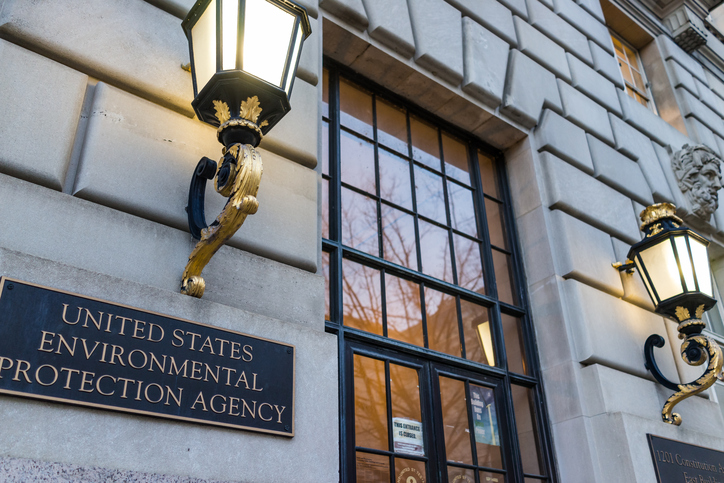May 1, 2018
EPA Proposes to Undermine Public Health by Controlling Information
Professor of Law and the Co-Director of the Environmental Law Program at the University of Arizona James E. Rogers College of Law

Last week, EPA Administrator Scott Pruitt announced plans to adopt a new rule that would severely limit the types of information that EPA may consider in designing rules to protect public health and the environment. If this proposal becomes final, it will require the agency to turn a blind eye to many scientific studies and other evidence of the effects of pollution. The rule is widely opposed by the scientific community. It may well be unlawful because it would prevent EPA from considering the best available science. It is also part of a broader, surreptitious, and profoundly misguided effort to undermine federal law by controlling information.
The current attack on information is best understood as a new front in the longstanding Republican war on our nation’s landmark environmental and public health laws. When Congress enacted those laws in the 1960s and 1970s, they enjoyed broad support among the American public and political leaders from both parties. A significant majority of the public—almost 60% of respondents a 2018 Gallup Poll—continues to prioritize environmental protection over unconstrained economic growth.
For decades, however, the Republican political establishment has sought to weaken or outright repeal those laws and the regulations that implement them. The Trump Administration has scored a series of victories on this front, dismantling environmental and health protections at an unprecedented rate. The EPA’s website lists 24 “deregulatory actions” it has completed since President Trump’s inauguration and another 41 under development.
Administrator Pruitt’s current proposal, however, is part of a different and more subversive strategy to control and conceal information as an indirect means of eroding legal protections. Laws and regulations require information to function; controlling the flow of information to government regulators can achieve the practical effect of eviscerating legal protections without debating their merits. Imagine a world in which the police were prohibited from talking to the victims of theft. While thievery would remain formally illegal, thieves could act with impunity because they would never face prosecution. Similarly, the Clean Air Act’s requirement that EPA establish air quality standards to protect public health loses its meaning if EPA cannot consider research linking air pollution to public health problems.
The current proposal would restrict the science that EPA can consider in making “significant regulatory decisions,” such as establishing air quality standards or requiring industries to use pollution control technologies. Tellingly, the proposal would not apply to other actions, like permitting decisions, that benefit industry. In the covered rulemaking processes, the proposal would create a litmus test for what science counts. EPA could only consider research where the researchers make their underlying data “publicly available in a manner sufficient for independent validation.”
To a lay audience, that proposal may superficially appear to promote transparency. Its effect, however, would be truly radical, because it would exclude a broad swath of well-substantiated information (including peer-reviewed scientific studies), because researchers often promise to keep the personal health information of the people involved in their studies confidential. Moreover, as a letter sent to Administrator Pruitt by 985 scientists explains, “many public health studies cannot be replicated, as doing so would require intentionally and unethically exposing people and the environment to harmful contaminants or recreating one-time events.”
This proposal to keep science away from EPA is just one manifestation of the broader Republican strategy to suppress information for the purpose of undermining protections for human health and the environment, without appearing to do so. EPA and other federal agencies have sought to limit qualified scientists’ participation on advisory boards, and to sideline the boards themselves. Some states have also taken part in this strategy, taking radical steps to create criminal and civil laws to prevent citizens from collecting truthful information about environmental conditions and animal abuse, and to bar government agencies from considering such information. And recently, a local prosecutor criminally charged for “witness tampering” when she wrote to a federal agency and asked it to investigate potentially illegal activities on public lands.
When citizen scientists are branded as criminals, and state and federal agencies turn a blind eye to information about illegal conditions, then the laws prohibiting the abuse of animals, contamination of waterways, killing of endangered species, and the like become toothless. And suppressing information about public health risks and illegal conditions conceals the continuing need for those laws in the first place.
I am deeply opposed to the Trump Administration’s efforts to eliminate regulations protecting human health and the environment. But at least such efforts are honest about their goals, thereby permitting the public to hold our elected officials politically accountable. Efforts like Administrator Pruitt’s current proposal to subvert policy by controlling information are nefarious. They smack of the totalitarian Big Brother envisioned by George Orwell and have no place in our democracy.
*Justin Pidot is an Associate Professor at the University of Denver Sturm College of Law. He previously served as the Deputy Solicitor for Land Resources at the U.S. Department of the Interior during the Obama Administration and as an appellate lawyer in the Environmental and Natural Resources Division of the U.S. Department of Justice
Environmental Regulation, Regulation and the Administrative State




